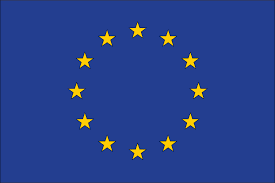Chemycal has been acquired by 3E
Learn MoreChemycal has been acquired by 3E
Learn MoreDiscover how Chemycal PRO helps you boosting your regulatory monitoring:

In the framework of the EU Plastics Strategy, at the request of the European Commission, the European Chemicals Agency (ECHA) has assessed the health and environmental risks posed by intentionally added microplastics and has concluded that an EU-wide restriction would be justified.The report covers a variety of sectors, from cosmetic industry to agriculture and construction. It reviews the available scientific information on the hazards of microplastics, identifies their uses and emissions, and tries to assess their risks in these areas.
Karmenu Vella, Commissioner for Environment, Fisheries and Maritime Affairs, said: “I am happy to see that work on restricting microplastics intentionally added to products is progressing. The EU is the first to address all microplastics intentionally added in products, and not just microbeads used in cosmetics. This is part of our comprehensive approach to tackle microplastics, which are potentially harmfulfor marine life, and enter our food chain, with yet unknown impacts on human health.” Elżbieta Bieńkowska, Commissioner for Internal Market, Industry, Entrepreneurship and SMEs said: “The EU is committed to reduce microplastics and ECHA's investigation is an essential first step to tackle microplastics that are intentionally used in products. There are alternatives available to replace microplastics - we need close cooperation with industry to achieve a true circular plastics economy”.
The microplastics within the scope of the restrictionhave a wide range of consumer and professional applications across multiple sectors. They are used in cosmetic products, detergents and maintenance products, paints, inks and coatings, construction materials and medicinal products, as well as in other products used in agriculture and horticulture and in the oil and gas sectors.Following today's publication, the reportwill be scrutinised by ECHA Committees, including a public consultation for 6 months. Sectors affected by the restriction should follow the process closely and submit their contribution during the public consultation. The ECHA Committees will formulate their opinions and send them to the European Commission, expected in spring 2020.The European Commission can then propose to amend the REACH Regulation. More information is available here.
2013 © MyChemicalMonitoring. ALL Rights Reserved. About Us | Terms and Conditions